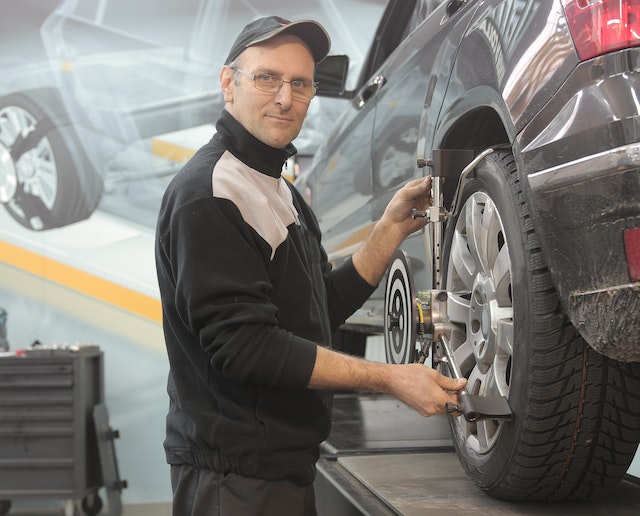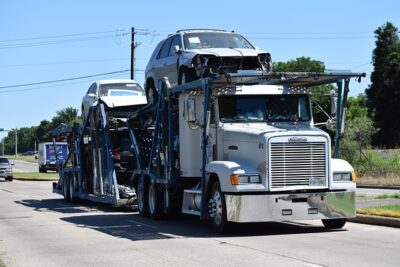Auto repair scams can irritate and financially drain unsuspecting vehicle owners. Corrupt mechanics and unethical repair shops can also take advantage of your need for more automotive understanding to overcharge for unnecessary repairs or services. However, you can protect yourself from these scams with a few preventive measures.
In this blog, we will explore practical recommendations and techniques to help you avoid vehicle restoration scams and ensure you acquire sincere and dependable auto repair services for your car. By staying knowledgeable and taking proactive steps, you could expectantly navigate the car restoration industry and make properly-knowledgeable choices about your automobile’s preservation and repairs.
What are Auto Repair Scams?
Car repair and auto mechanic scams are a common problem, costing customers millions of dollars each year. Be wary of car repair fraud! Learn about auto repair scams to protect yourself from fraud and save money on car repairs.
- Auto repair scams are deceptive activities that prey on vehicle owners.
- To charge for needless repairs, mechanics may exaggerate or create faults.
- Untrustworthy establishments may replace items that are still in good working order.
- Some scams involve overcharging for parts, labor, or services.
- False warranty or guarantee claims defraud car owners.
- Customers are lured in with low prices, only to be charged more afterward.
- Misleading diagnostics might result in unneeded maintenance and costs.
- It is common to provide unwanted add-ons or upsell unnecessary services.
- Creating a false feeling of urgency by falsifying maintenance data.
- Taking advantage of car owners’ lack of information or fear of abusing them financially.
Common Tips To to Avoid Costly Auto Repair Scams
Ask for Trusted Referrals
Asking a friend, colleague, or family member for a reliable auto repair suggestion is an excellent place to start. Online reviews are fine, but a suggestion from someone you know is more trustworthy. Especially if you know someone who has been taking their car there for years, look for someone who specializes in the brand and model of your vehicle.
It ensures they have the necessary equipment, experience, and understanding to service your car. Another thing to look for is an ASE Certified Technician, which means they know what they’re doing!
Request a Free Estimate
To avoid mechanic scams:
- Make sure everything is documented at the repair shop.
- Ask questions and review the estimate until you are satisfied with the mechanic’s explanation. If they refuse, you should take your automobile somewhere else.
- Inquire whether the parts are OEM (original parts created and approved by your car’s manufacturer) or aftermarket (parts made by another brand/manufacturer).
OEM parts are usually more expensive, while aftermarket parts may be of superior quality. To avoid overcharging or unapproved expenses, request formal consent for further repairs. In addition, look for the warranty that comes with the repair to ensure that they guarantee their components and labor in case of an issue after you drive away.
Decode Mechanic Speak
A mechanic’s description of a problem can be perplexing if you’re new to car repairs. If you need help understanding something, get a written estimate, take notes, and tell the mechanic you’ll return or contact them later. Don’t agree to work that makes no sense. Learn about automotive problems on the internet, identify the parts that need to be repaired, and identify the symptoms of the problem. If something seems odd or unconnected, deny service at the shop.
Request to See the Issues
Request that your mechanic demonstrate what is wrong with your vehicle. Some mechanics may be reluctant to show you the problem, but prior investigation can be beneficial. If you’re unfamiliar with the parts, browse online for images of different problems to help you identify them. Take your business elsewhere if the mechanic refuses to show you what’s wrong.
Suppose the problem appears to be different from what it should be. Please take a photo and show it to a more car-savvy acquaintance. Before you commit to the repair, a reputable mechanic will gladly explain the problem in detail and demonstrate what’s wrong.
Don’t Pay for Unauthorized Repairs
Before repairing any parts, a qualified technician will give you an estimate and get your approval. If an auto repair business replaces parts you did not allow, you should not pay for the work. If the shop refuses to return your car, contact the police and file a fraud report.
Many drivers pay for unlawful repairs, encouraging mechanics to continue unethical behavior. Even if you believe your vehicle requires care, refuse payment in the event of unlawful repairs.
Go to Authorized Shops
Before visiting a repair business:
- Seek advice from friends and family.
- Examine internet review sites.
- Select a reliable store with positive evaluations.
Websites for mechanics should be trusted because they are easily faked and bogus. It’s crucial to realize that not all shops have entirely favorable evaluations, as consumers are more inclined to write negative reviews out of annoyance and fail to disclose their pleasant experiences.
Don’t Forget About the Deductible
The waived deductible scam is a fraudulent scheme in which mechanics claim to waive the insurance deductible for repairs, then bill the insurance company for more than the service cost and pass the savings on to the consumer. Insurance fraud is prohibited and can result in criminal penalties. It is critical to decline this offer since it puts you and your family in danger and signals a shady technician. It is also wise to take your vehicle elsewhere, as this is a symptom of a dishonest mechanic.
There may be times when auto repairs, such as wheel alignment, are unavoidable. Taking your vehicle to a registered auto repair shop provides efficient and dependable service. Avoid rash DIY projects to guarantee your money is carefully spent.
Related Post:
Why is an Auto Repair Shop Preferable to Helping Yourself Fixing Car Issues?







